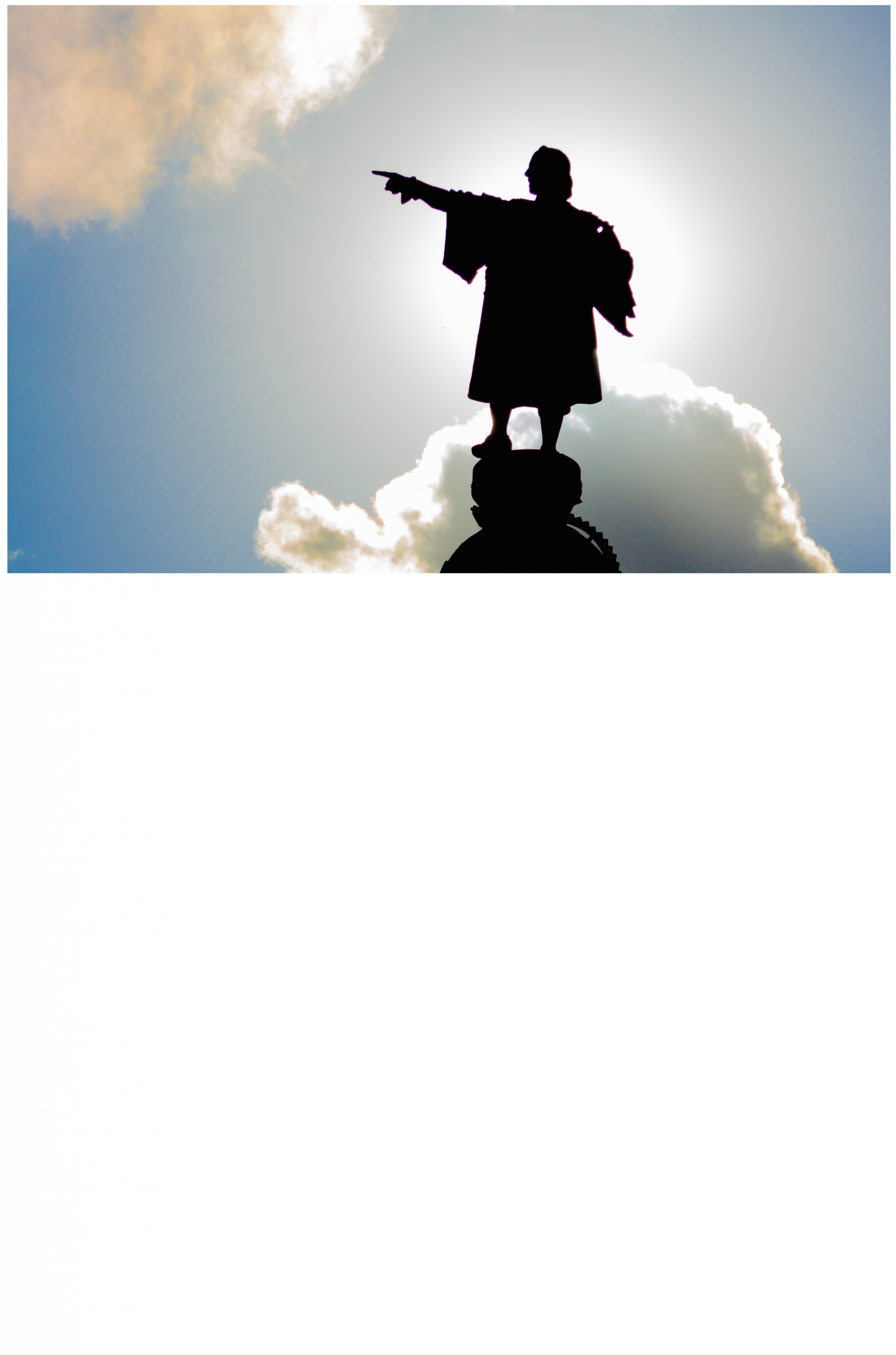
Christopher Columbus' arrival in the "new world" in 1492 marked the start of an epoch of mass death. An estimated 50 million inhabitants of North, Central, and South America died between that date and the mid 1600s, from warfare, enslavement and the rapid spread of European disease among the native populations — who had no community-ingrained immunity. The scale of human obliteration was so massive that it ushered in a shift in the makeup of atmosphere, leading scientists to propose that 1610 be recognized as the beginning of the Anthropocene — the moment when humans began to alter Earth's processes.
In a paper published in the journal Nature this month, scientist point out that in 1610, the dramatic drop in population allowed about 65 million hectares of farmed land in the Americas to return to forest. The growth of so many trees all at once sequestered enough carbon dioxide to cause a measurable difference in the atmosphere. The world momentarily became cooler.
"Historically, the collision of the Old and New Worlds marks the beginning of the modern world," ecologist Simon Lewis, the lead author of the paper and a scholar at Leeds University and the University College of London, said in a statement. "Geologically, this boundary also marks Earth's last globally synchronous cool moment before the onset of the long-term global warmth of the Anthropocene."
The term "Anthropocene" means, simply put, the "era of us." It is used by scientists and thinkers to describe the rapidly changing world we're living in, and to present the idea that human activity has so drastically altered the planet that humanity in itself is the defining environmental influence of our time. The term was first put into scientific use by Dutch chemist Paul Crutzen, who won a Nobel Prize in 1995 for discovering the specific group of chemicals that caused a hole to open in the ozone layer. Officially, at least, we have been living in the Holocene geologic period for the past approximately 12,000 years. But in a short essay published in 2002, "Geology of Mankind," Crutzen argued that humans have so altered the geology of the planet so as to usher in an entirely new geological epoch.
In her recent book The Sixth Extinction, journalist Elizabeth Kolbert writes that one of the scientists on Crutzen's Nobel-winning team came home from his lab one night in the midst of studying the ozone, and told his wife, "The work is going well, but it looks like it might be the end of the world."
Since then, scientists have been grappling with the question of when, exactly, the Anthropocene started. Some have proposed the beginning of the industrial revolution as a start date, when human activity began releasing vast quantities of emissions into the atmosphere. Earlier this year, another group of scientists suggested that it be pegged to the Atomic age, in the mid-twentieth century, when nuclear bomb tests scattered artificial radionuclides across virtually every corner of the globe, leaving a very literal and long-lasting residue of human action behind.
Uncommon Knowledge
Newsweek is committed to challenging conventional wisdom and finding connections in the search for common ground.
Newsweek is committed to challenging conventional wisdom and finding connections in the search for common ground.
About the writer
Zoë is a senior writer at Newsweek. She covers science, the environment, and human health. She has written for a ... Read more
To read how Newsweek uses AI as a newsroom tool, Click here.








